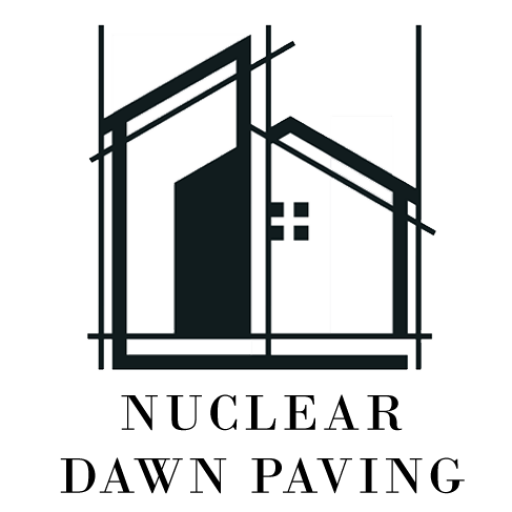Revolutionary Smart Mortar Technology is Transforming Masonry Construction with Self-Healing Concrete That Repairs Itself
The construction industry is experiencing a remarkable transformation in 2024, with smart mortar technology and self-healing concrete leading the charge in revolutionizing masonry construction. These innovative materials represent a significant leap forward from traditional building methods, offering unprecedented durability, sustainability, and cost-effectiveness that’s capturing the attention of contractors and property owners alike.
Understanding Self-Healing Concrete Technology
The ability of self-healing concrete (SHC) to successfully heal fractures without the assistance of humans has received much attention since it increases operational life and lowers maintenance expenses. This groundbreaking technology works through two primary mechanisms: autogenous healing, which occurs naturally through the continued hydration of cement particles, and autonomous healing, which involves engineered healing agents embedded within the concrete matrix.
Researchers are investigating the potential of bacteria to function as a self-healing agent in concrete. This method utilizes bacteria to induce the precipitation of calcium carbonate (CaCO3) produced by bacterial metabolism in an environment with high calcium levels. When cracks form in the concrete, dormant bacterial spores activate upon contact with water and begin producing limestone that naturally fills and seals the cracks.
How Smart Mortar Technology Works in Masonry Applications
Originally developed for the repair of concrete structures and already commercialized in the Netherlands, this innovative mortar can repair itself by recovering its original set of properties (watertightness, aspect) after degradation or damage has occurred. Its self-repair mechanism relies on the incorporation of “limestone-producing bacteria” within the mortar paste, along with their nutrients. Upon encountering water within a crack, dormant bacterial spores activate and metabolize nutrients, leading to the precipitation of limestone (calcium carbonate).
This process, known as autonomous healing, enhances the mortar’s innate ability to self-heal cracks up to 0.1 mm in width, the so-called “autogenous healing”. For masonry construction, this technology represents a game-changing advancement that addresses one of the industry’s most persistent challenges: crack formation and repair.
Real-World Benefits for Property Owners
The implementation of smart mortar technology offers substantial advantages for both residential and commercial property owners. Self-healing concrete cracks would extend the lifespan of concrete structures, making the material slightly more resilient but also more efficient. This translates to significant long-term savings in maintenance and repair costs.
Experimental results showed that self-repair, in terms of bond restoration and aesthetic filling of cracks, occurs even after multiple cracking cycles when the bio-based mortar is used with both types of bricks, optimizing the autogenous healing (intrinsic) of cement-based mortars. Under humid conditions (RH ~ 95%), 50% vs 80% of the original capacity was regained in fully separated couplets made respectively with clay and calcium-silicate bricks.
The Current State of Smart Mortar Technology in 2024
It will be available in three different forms: self-healing concrete, repair mortar, and liquid repair medium. Unfortunately, the technology is currently extremely expensive, costing approximately USD 33–44/m2. However, it will initially be viable only for projects where leakage and corrosion are very severe, such as underground and undersea constructions. The cost of the calcium lactate required for the bacteria to manufacture calcite is a factor, but researchers are striving to develop a less expensive, sugar-based alternative worldwide, and as demand for concrete grows, the price should fall.
The formulation of mortar has seen significant advancements in 2024. These developments are making smart mortar technology increasingly accessible to mainstream construction projects, including residential masonry work.
Finding Professional Implementation Services
As smart mortar technology becomes more widely available, property owners seeking to implement these advanced solutions should work with experienced professionals who understand both traditional masonry techniques and cutting-edge innovations. When searching for qualified masonry contractors near me, it’s essential to find companies that stay current with technological advancements while maintaining the highest standards of craftsmanship.
Companies like Ageless Masonry, which has been providing homeowners in Suffolk and Nassau Counties on Long Island, NY, with the highest-quality paving and masonry services since 2003, represent the type of established professionals who combine decades of experience with modern innovation. Since 2003, they have provided Long Island homes with outstanding workmanship that exceeds customer expectations. As a top-rated masonry company on Long Island, they pride themselves on delivering exceptional results at a competitive price.
The Future of Masonry Construction
Smart concrete combines eco-friendly materials with advanced nano-technology, featuring self-sensing and self-healing properties to detect damage early and autonomously repair cracks. In conclusion, smart concrete presents a significant opportunity to transform the construction sector, emphasizing eco-friendliness, resource optimization, and robust infrastructure.
The future of bio-self-healing concrete is promising, with advancements in bacterial engineering, smart technologies, sustainability, and economic viability expected to drive the technology forward. As the technology matures, cost reductions through improved production methods and economies of scale could make bio-self-healing concrete more economically viable, leading to its widespread adoption in the construction industry.
Smart mortar technology represents more than just an incremental improvement in construction materials—it’s a fundamental shift toward intelligent, self-maintaining infrastructure. As costs continue to decrease and availability increases throughout 2024, property owners who invest in these advanced masonry solutions will benefit from reduced maintenance requirements, extended structural lifespans, and enhanced property values. The future of masonry construction is here, and it’s smarter, more sustainable, and more cost-effective than ever before.
